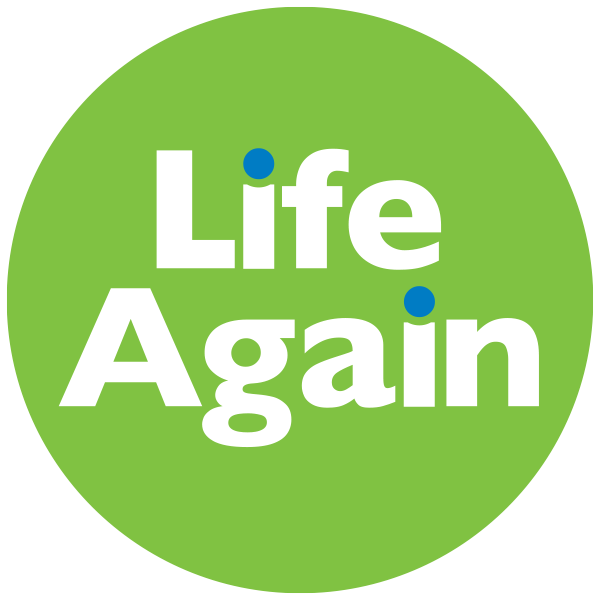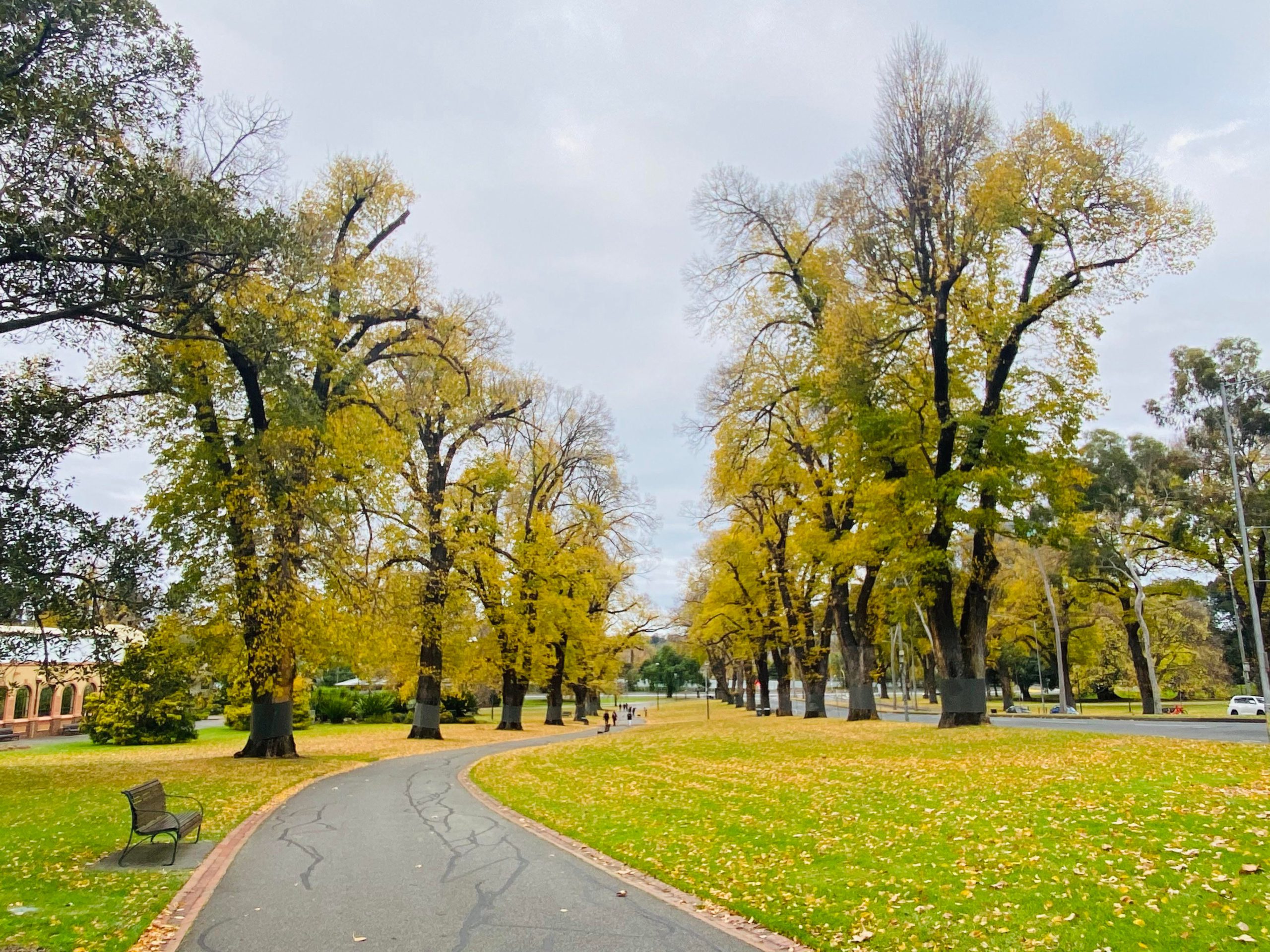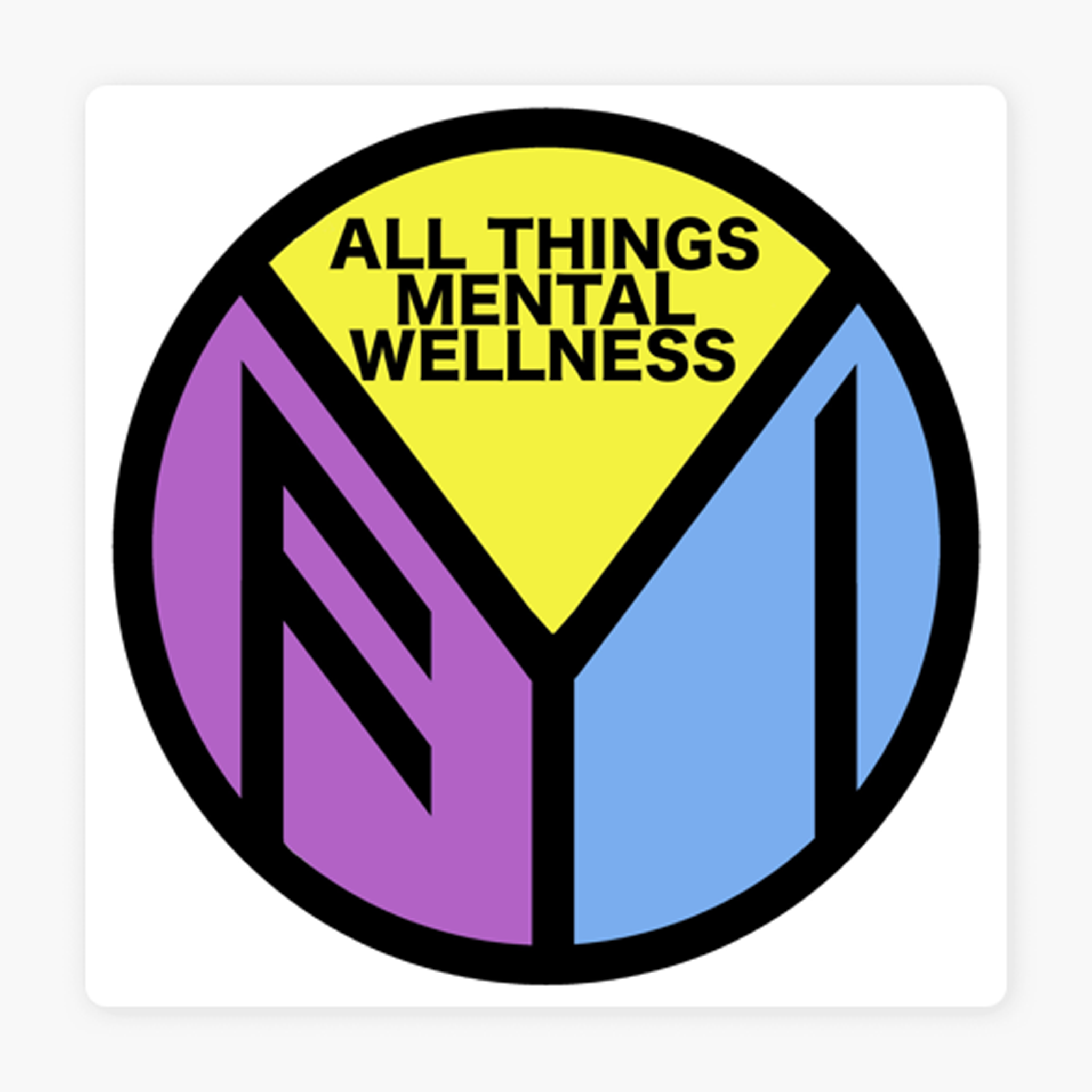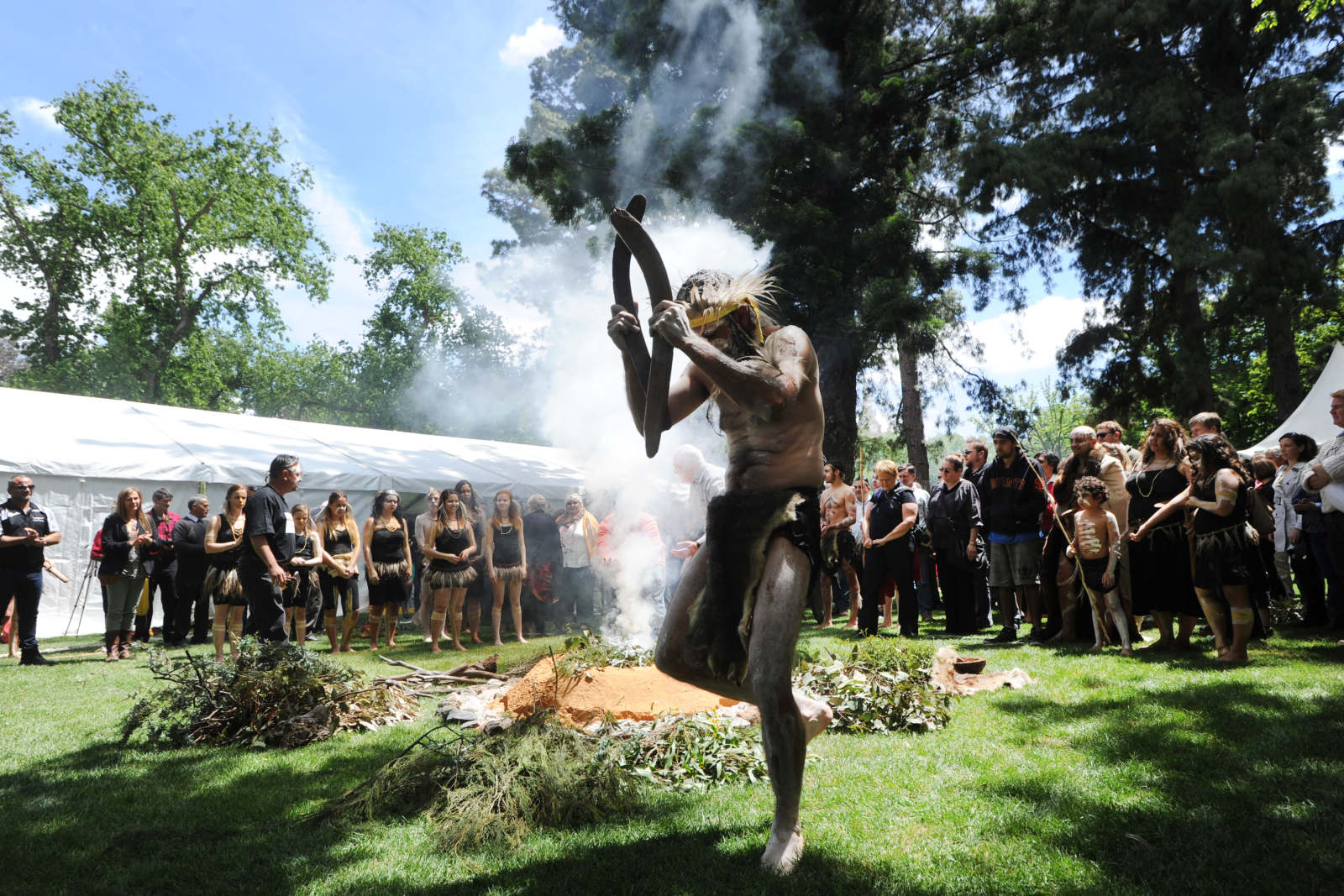FINDING JOY!
FINDING JOY IN A SEEMINGLY JOYLESS TIME.
By Gareth Andrews
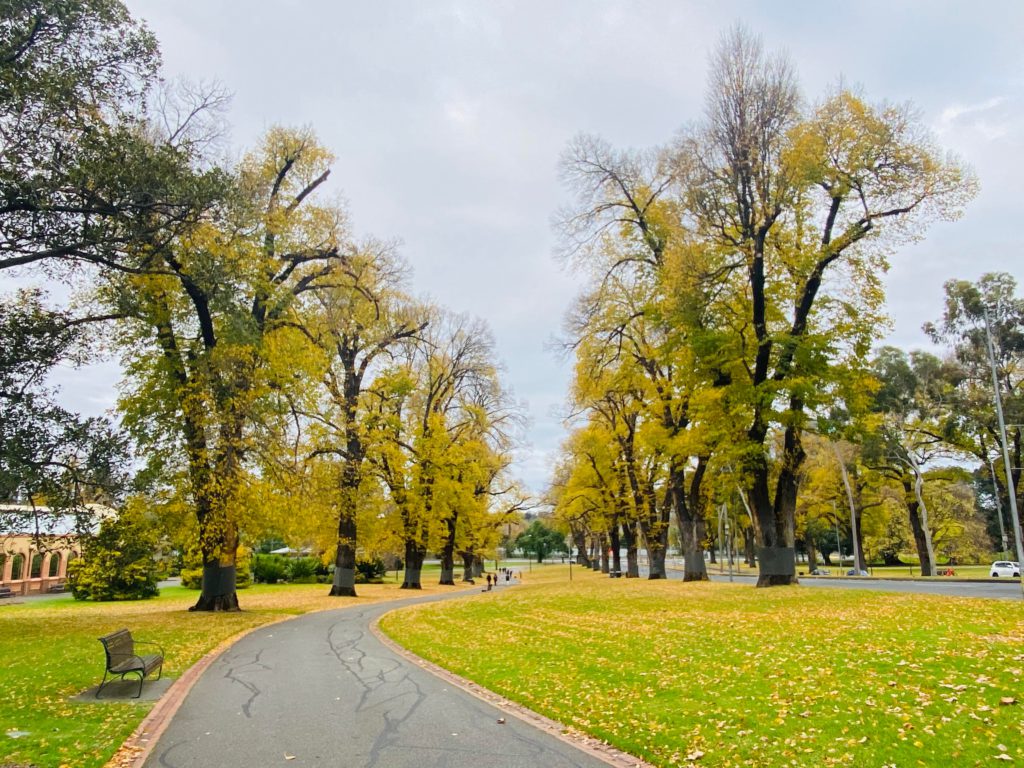
My piece of heaven on earth during the past 18 months in Melbourne has been the marvellous Fitzroy Gardens, immediately adjacent to the city’s CBD. This major Victorian era setting has become my new exercise venue, and a place where my soul can be recharged. It is my salvation, my reparation, my counsellor. Early mornings twice a week with my trainer Emma (when allowed) and my mate Ray ( when allowed!) have been a God-send. In bleak times they have given me happiness and peace, as well as a chance for a good work out. Never to be left out has been my black pug, Wednesday. And yes, that’s her name!
The autumnal beauty in the Gardens is extra special. Crisp sunny coolish days and even light rain bring their own atmosphere. But there is nothing more beautiful than the magnificent trees, particularly the mighty deciduous English Oaks, English Elms and London Planes. The gnarled Oaks are glorious in their nakedness and the carpet they throw out from their falling leaves is spectacular.
And therein lies this story. Dog Wednesday discovered the thrill of burying herself in the latest fall, practising cartwheels, spins, and all measures of joyousness. Joining her and being part of her fun was a moment for me when my own world stopped. My mental world. My thinking world. It opened my own world to pure joy. It was spontaneous.
Joy is hard to explain as it comes from an internal place. It is an event. It is an experience. It happens to you, and you alone. It’s an engagement between your senses and your feelings. Others can witness it but never see it. Theirs is theirs and yours is yours. Joy is high energy and of shortish duration. But it does alter you in a way that you are not quite the same person as before. This is the key to this story.
Many years earlier, not far from the Gardens, I was wandering through the MCG carpark after watching a game of football. I remember nothing of the day itself other than it was deep into the winter months. I do however remember the period of my life. It was a grim time for me, my own winter of discontent. I was bunkered down in my heavy overcoat, experiencing the smell of nature after a rain event, a natural occurrence that I have subsequently learned has a word of its own. Petricore. Suddenly my worry and anxiety was washed away by a moment that is still hard to describe. I felt warm, cocooned, safe, and somehow happy and lucky. It was fleeting but it has remained with me to this day, maybe 20 years on. It was joy.
It’s hard to find joy in our COVID world, in our 21st Century world. Wherever we look there is doom, gloom, and disaster. There is chaos in our hearts and minds. It’s hard enough to get up, let alone get out. It’s easy to say “I’m over it, I can’t be bothered anymore.”
But that’s the point. We actually have to be bothered. Boredom, anxiety, despair and depression often accompany the absence of joy. Something has to change and my first two stories are all about getting outdoors. Putting yourself into a situation where it is more likely to happen. Slowing down your mind. No matter how else you feel, you’ll feel some level of rejuvenation.
I tried something earlier this week. I had spent a couple of weeks seeing the mainly housebound brigade heading off for coffee at the local. (It used to be the pub!) I realised there was a sameness about everybody beyond the ubiquitous mask. It was our clothing. I was part of the black brigade. Beanies, gym tops, tights, runners, and whatever else in between. Anything resembling grey was a refreshing change. Faces mirrored the general mood as the latest lockdown was cutting deeper into our psyches. On this particular morning I changed my mood by changing my clothes. Yellows, oranges and bright green gear were pulled out of my cupboard and as I dressed I experienced an instant high. It was a tweak of joy. It was as if I’d opened a window to allow a sliver of sunshine in- metaphorically of course. It was a spontaneous action and led to an openness to experience joy. It was simple. Of course, the coffee crew had a positive reaction. It mightn’t have been joy but perhaps a measure of happiness.
You certainly can’t invent joy as it’s a reaction to a circumstance. But if you have a crack at the circumstance you never know what might eventuate. My mate Johnny lives in Lorne and has the Otways literally at his back door. I sneak down to visit him between lockdowns!! All kosher. Easter was a great time to visit but the weather attracted masses to the beaches. We decided to drive into the Otways instead. Johnny had his ‘secret pond’ little more than 10 kilometres from home. It was literally on the edge of the forest but you could have been deep inside. In classic Johnny style we bought a few sausages, threw in a cheap BBQ, wine and glasses and a couple of small deck chairs. Cheap and cheerful and very civilised. The drive was short and the immersion into nature was instant with hardly another car on the road. Johnny pulled up beside a small, grassy clearing with the little pond nestling in the shade alongside the road. Picturesque to say the least. We were soon seated, settled and cooking.
Then came the joy. There was action in the pond is how Johnny puts it. And for the next half an hour or so we focussed on the frog symphony. Joy had a fair chunk of bliss added in. Johnny pointed out the “voice” of the Geocrinia victoriana , the Eastern smooth froglet common to the area. Then he took out his Frogs of Australia App to prove he was right. It was a moment in time. The world stopped. It may be an experience rather than a state of mind but you become more open to it by putting yourself in situations where it is more likely to happen. When we left I had a bit of a hop in my step!
So there we almost have it. Joy can suddenly come from nowhere but we have to try to put ourselves in a position when we are open to it.
One of ways is through Curiosity, particularly in the outdoors. Curiosity is a portal to our soul. When going outdoors, even on the briefest of occasions, lift your head high rather than looking at the ground or looking at your Social Media. Look at the sky, at day or night. Feel how small we really are in the scheme of things. Whistle a happy tune.
Of course it can come more regularly through walking along the beach, going to a concert, meeting a special friend, reading a book. It can be hormone driven which brings libido into play.
And here’s the last one I’d love to explore. I’ve had the joy of playing in a winning AFL (VFL at the time) Grand Final (I’ve also experienced the pain of playing in a losing one.) The moment when the siren sounded to end the game and the rest of the time out of the ground, receiving the Cup and running around the stadium with it, was Joy to the nth degree. In the rooms afterwards, my feeling was one of intense pleasure rather than joy. The pleasure was the memory of the experience rather than the experience itself. I’ve sometimes thought of Michael Tuck’s thoughts in light of being a seven-time premiership-winning player with Hawthorn. Can you get so programmed to that sort of success that the spontaneity of joy diminishes? I suspected it would probably be a case of multiple joys. He’s the only one who’d know. I rang Tucky. His soulful voice paused and contemplated the memory. “Funny you know. There was always joy, but the level was always dependent on how well you played. It’s interesting that in the later GFs my joy was more for the younger players who’d not had the experience before.” And there you go. Levels of joy and types of joy.
In essence, joy is simple. Joy is fleeting. Joy opens the heart, the mind and the soul to better things. It can give hope. In bad times as well as good. You never stop seeking it and finding it. It’s personal.
Author’s Bio
Gareth Andrews - Founder and Director of Life Again, a registered Not for Profit charity that educates and helps men to change and lead more fulfilling and purposeful lives. Through writing, public speaking, taking men to the Outback and working with Aboriginals, workshops and personally challenging men.
ON COUNTRY 2021 TESTIMONIALS
A CHAT WITH OUR GUESTS & HOSTS.
Discussions in the red centre.
Listen to a few of our trips hosts and guests discussing the benefits they receive from making a trip out to Central Australia, how they feel, best takeaways and why we all need to have this experience.
Click the link below to load the clip in Youtube.
On Country Benifit Discussion
MIND MEDICINE PODCAST
MIND MEDICINE PODCAST
With Gareth Andrews
On today's show Gareth Andrews discusses all manner of things, including Life Again and its great work with men and their mental health challenges, his wonderful and varied career, handling health challenges, handling ones own demons, and handling the loss of freedoms.
GUEST OVERVIEW: Gareth Andrews is Executive Director and Founder The Life Again Foundation. He was a Victorian Football League player in 1965 to 1975, except 1971 when travelling overseas; and President of the VFL Players’ Association (now AFLPA) in 1975. Gareth was commentator and analyst for the Australian Broadcasting Corporation (ABC) television and radio in 1980-1989 and Football journalist for the Sunday Age in 1989–1998.
NICK COLUMB - FYI - ALL THINGS MENTAL WELLNESS
A PODCAST.
FYI - ALL THINGS MENTAL WELLNESS.
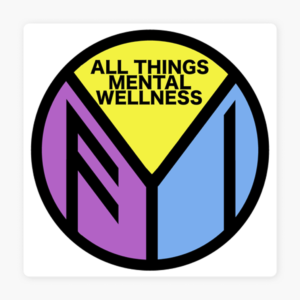 In this epidsode FYI – All Things Mental Wellness chats with Life Again’s Nick Columb. Nick currently works as a counsellor and psychotherapist in private practice. He is also the Director of Positive Health programs for Life Again and is super passionate about mens mental health.
In this epidsode FYI – All Things Mental Wellness chats with Life Again’s Nick Columb. Nick currently works as a counsellor and psychotherapist in private practice. He is also the Director of Positive Health programs for Life Again and is super passionate about mens mental health.
In this podcast he shares his own journey through mental ill-health and the path he took to overcome his own struggles. A big thank you to FYI for sharing the microphone and helping to promote awareness around mental health and other important psyhological issues.
Take a look at some of their other fantastic podcasts on their channel here FYI – ALL THINGS MENTAL WELLNESS
Links mentioned in this episode:
NICK COLUMB - ON COUNTRY 2021
A CHAT WITH NICK COLUMB.
DIRECTOR OF POSITIVE MENTAL HEALTH PROGRAMS.
A brief chat with our Programs Director Nick Cooumb during his recent On Country Immersion Experience to Central Australia.
Click the link below to load the clip in Youtube.
Nick Columb talking On Country 2021
FIRST NATIONS VOICES MUST LEAD ON SOLUTIONS
FIRST NATIONS VOICES MUST LEAD ON SOLUTIONS.
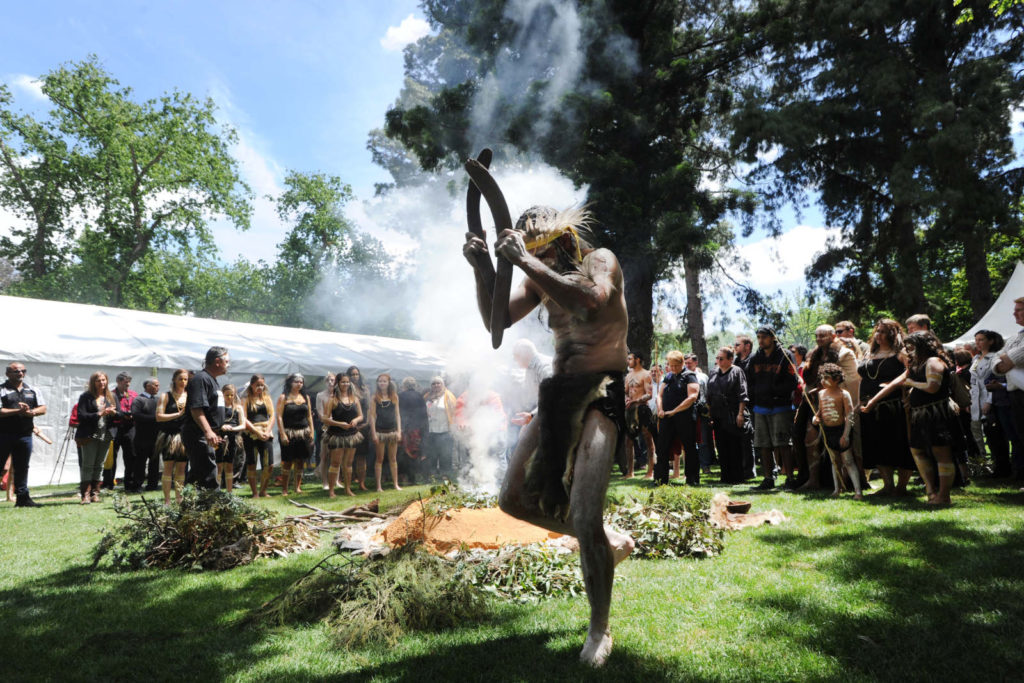
In many ways I am just like many of you. I am the son of a migrant – one of the so called “10-pound Poms” who migrated from England, built a home, a family, and a life. A life that enabled me to graduate from high school and go to university. In these ways I am just like many of you.
Yet I am also the son of a Yorta Yorta and Dja Dja Wurrung woman.
And in this way I am unlike many of you. I benefited from the privilege of being born and raised on Country surrounded by Aboriginal community and culture.
I benefited from being told the true history of this country. And I benefited from understanding early that the systems we navigate have been built by and for those with privilege, white and otherwise.
Now as an Aboriginal cardiologist and researcher I support organisations around the country with a shared commitment to advancing equity for Aboriginal and Torres Strait Islander people. Leading this work would not be possible without Indigenous support and solidarity – across country, generations, and nations.
It also wouldn’t be possible without the support of allies who are willing to critically reflect and resist the unjust structures and systems that produce inequities in this country. One such inequity is the number of Aboriginal and Torres Strait people who choose like me to become a medical specialist.
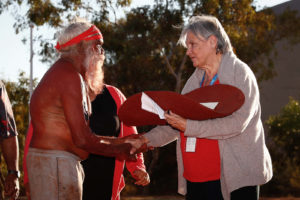
Of Australia’s 71,700 medical specialists only 110 identify as Indigenous. We must ask: Why?
Racism and lack of cultural safety are key deterrents to our mob entering specialist training. So that you can understand what this means on a personal level let me share my experience of training and working within what I call the “problem space” of Indigenous health.
This is not a space that Indigenous people have created. It is a space that has been created for us over 230 years. It is a space in which the people and community you love are reduced to stereotypes of deficit, disadvantage, and dysfunction. A problem space where Western science is valued over Indigenous knowledge.
It is a problem space where standing against racism often means standing alone. Where in addition to your fulltime job, you are expected to be “all things Indigenous” – adviser, mentor, committee representative, community member, cultural safety support, etc.
A problem space where trying to minimise risks to community increases the risks of harm to yourself. A problem space where lateral violence is accepted as the norm.
But perhaps more than anything the problem space is a lonely one where, in ticking boxes for others, you are left with little time to tick boxes for yourself and the very things that
define who you are – connection to country, culture and community.
The problem space itself is a key barrier to delivering tangible solutions that benefit Aboriginal and Torres Strait Islander communities in ways that are meaningful to them. This makes building a solution space for Indigenous health urgent work.
It is time for a solution space that sees advancing health and equity for Aboriginal and Torres Strait Islander people as
everyone’s business. Not just because we need to Close the Gap but because it’s the right thing to do.
A solution space that understands the fundamental importance of Aboriginal and Torres Strait Islander people being empowered to lead this work in culturally safe and responsive workplace environments.
A solution space where Indigenous people can focus on achieving their full potential without being weighed down by the cultural load that comes from being Indigenous. A solution space
where race science, deficit narratives and short-term fixes give way to Indigenous-led and community-aligned research and solutions.
A solution space where lateral violence is recognised as a manifestation of internalised oppression rather than an expression of Indigenous culture. A solution space that understands we cannot achieve meaningful change without understanding the true history of this country and how this history continues to shape the ways in which we are born, grow, work, live and age.
A solution space that understands we will not just get over it.
The solution space I envisage aligns with the Uluru Statement From the Heart because it privileges Indigenous voice, gives truth to Indigenous realities, and understands Treaty as the road we must travel to address something that is entirely ours and has always been ours – what the statement describes as “the torment of our powerlessness”.
We have the roadmap. Let’s work together to build a solution space that allows the next generation of Aboriginal and Torres Strait Islander leaders to thrive and achieve full flight – beyond the problem space.
Article From
The Age - May 23, 2021 - link
Author’s Bio
Associate Professor Luke Burchill is Australia’s first Aboriginal cardiologist. He provides leadership across a number of organisations including the Royal Australasian College of Physicians and HeartKids Australia.
